GoEco > Central America > Costa Rica > Sustainable Organic Coffee Farming

Get your hands dirty while assisting local farmers to grow, harvest and produce fair trade, organic coffee! Coffee is an important product in Costa Rica, for both cultural and economic reasons. It is an immense help when volunteers work with the local farmers who take part in small scale, high-quality production while being mindful of and taking care of the region’s natural environment through eco-friendly agriculture.
Program Highlights:
Your Schedule at a Glance:
Arrival Day, Sunday: Arrive at Juan Santamaria International Airport (SJO). You will be picked up from the airport and taken to your home stay in San Jose. Spend the day settling in and enjoy the young and vibrant atmosphere of the nation’s capital.
Day 1, Monday: Your host family will take you to the Institute in San Jose, where you will take part in an orientation session to familiarize yourself with the project and your time in Costa Rica. After Orientation, you will be driven to the bus station to transfer to Monteverde, settle in with your local host family.
Day 2-5, Tuesday-Friday: Travel to the project site in Monteverde and begin your volunteer work. Volunteers are expected to work four-six hours per day, and may take part in tasks such as planting and pruning coffee trees, packaging and marketing, assisting with deforestation projects and supporting supplemental agriculture projects.
Day 6-7, Saturday-Sunday: Your weekends are free to rest and relax; however, if additional help is needed on the farm, the project director may ask for your help.
Remaining Weeks: The remaining weeks will follow a similar schedule of volunteering Monday-Friday and having Saturday-Sunday free. Use your weekends to explore the Monteverde region, or have a chat with the local staff about the must-see places in Costa Rica. Departure is on Saturday.






What’s Included





What’s not Included
Flights, visas (if required), travel health insurance, lunches while in San Jose, personal expenses

This project is located in Monteverde in the Cloud Forest highlands of Costa Rica. Monteverde is much cooler compared to the coastal areas of Costa Rica as it is roughly 1 mile (1500m) above sea level. The region is defined by a tropical climate, where seasonal variation does not really exist and there is not much shift in the temperatures or rainfall throughout the year. “Pelo de Gato” is the regional name for the thin mist that blows in from the west to shape the Monteverde Cloud Forest, which creates mystical rainbows when the sun shines. This entire area is home to one of the world’s most biodiverse microclimates.

The coffee farms involved with this volunteer program are eco-friendly in that they are not industrialized and, therefore, do not cause high levels of pollution, as other farms do. The coffee farm uses organic techniques, and the coffee produced is sold both at the family-owned farm itself and online and is fair trade. Volunteer work predominantly takes place in the morning, with volunteers waking up around 7:00 AM and working for roughly 4-5 hours. Depending on the time of year, volunteers will lend a hand to different aspects of the coffee farming process. This process includes planting, harvesting, shelling, sorting, roasting, grinding and bagging of coffee beans. As a volunteer, you will also be involved in farm maintenance.
Some of your tasks may include:
Please note: Please be aware that based on the needs of the project, volunteer activities and schedules are apt to change. There is a possibility you will be asked to help on the farm for a few hours on Saturday if there is a lot of work to do, though work on the weekend is not mandatory.
Holidays: The project is open year-round; however,activities and schedules may differ on the holidays. For specific dates, please check with our placement coordinators.
A typical day: Volunteers will have breakfast around 7:15 AM and work on the coffee farm from 8:00 AM – 12:00 PM, followed by lunch. After lunch, you might be asked to work a couple of additional hours if there are specific tasks pending.





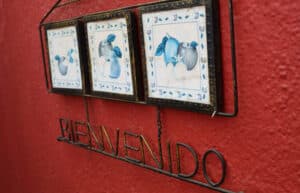
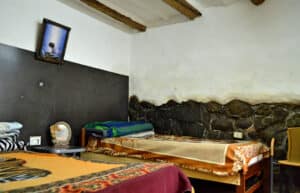
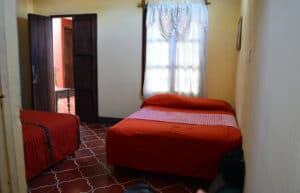
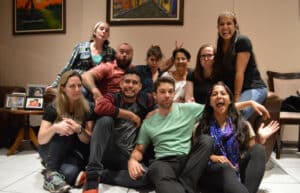
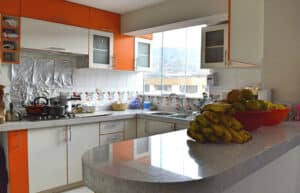


Monteverde’s lush green landscape is a cool, misty and tropical place with mountains and forests galore. During your spare time you can take delight in hiking, zip-lining, white water rafting and mountain biking. On the weekends, which are meant for relaxation, you can also visit Costa Rica’s beach areas to decompress in the sun, snorkel and learn how to surf.
Program add ons:
Make your experience multidimensional by joining one or more of these special add-on programs in Costa Rica:
Spanish language immersion: 1 to 24 weeks of Spanish in small group or private classes
Surf school: five- day surf school at the beautiful Manuel Antonio beach
Scuba diving certification: four- day PADI diving certification
Mini Adventure: Snag the best highlights of Costa Rica on this weekend-long tour including Costa Rica Cultural Night, Volcano Tour, La Paz Waterfall Gardens and catamaran tour to Tortuga Island.
Please note that there is an additional fee for these programs.

© 2022 GOECO | All rights reserved
Develop & Design | Msite